JONATHAN LITTLE ADVANCED TOURNAMENT COURSE
Advanced Tournament Course at a Glance
Before I dive into individual sections of the course, here’s a quick breakdown of what you can expect inside. Each section comprises a number of high-quality video lessons covering game theory, examples, charts, and everything else you’ll need to succeed.
It’s worth noting that this course was envisioned as a sequel of sorts to the Tournament Masterclass. It expands on numerous topics covered in that course and introduces some new ideas, so you’ll get the best results if you first go through the Tournament Masterclass.
Of course, if you already have a solid understanding of poker fundamentals, you can dig straight into this course. The important thing is that this course is geared toward those who already know the basics and are looking to expand their poker knowledge.
Advanced Bet Sizing Concepts – Jonathan Little
When it comes to bet sizing, players tend to stick to certain numbers, such as half the pot or one-third of the pot, in almost all situations. However, to become a tournament crusher, you need to take things to the next level and learn how to vary your bet sizes efficiently.
That’s exactly what this section of the Advanced Tournament Course is all about. It will help teach you to recognize flop, turn, and river situations where you want to bet very tiny or go very big.
Jonathan Little explains all the different aspects that come into play when deciding on your bet size. These are things such as the nut advantage, board connectivity, stack depth, etc.
This part of the course is split into several subsections, namely:
- Betting big on the flop
- Betting small on the flop
- Adjusting raise sizes when facing a bet
- Turn continuation betting
- River bet sizing
Deep-Stacked Adjustments – Jonathan Little
This section of the Advanced Tournament Course deals with the situation when you’re playing 75+ big blinds deep. Once again, it is a continuation of sorts to the Tournament Masterclass, which primarily covers 20 and 40 big blinds play, as it is a far more common scenario.
Some of the most important aspects covered in this section have to do with how the position has an even bigger impact on your decision and how the nut advantage influences your betting options.
The overarching idea in this part of the course is that your stack-off threshold increases as stacks get deeper. Simply put, you need a much stronger poker hand to risk your entire stack compared to when playing 20 or even 40 big blinds deep.
Jonathan goes through different scenarios to explain the kind of adjustments required when playing with deep stacks after the flop. You’ll learn how this shift influences your c-betting frequency across different boards, how it influences your bet sizing and more.
There is also a video devoted entirely to the increased importance of position. With SPR increasing, the value of being the last person to bet does as well. Once again, you’ll get to see a variety of charts and examples explaining exactly why this is the case.
Multi-Way Postflop Play – Jonathan Little
The third section of the PokerCoaching.com Advanced Tournament Course addresses an interesting topic that’s often neglected in or only marginally explained in basic courses, namely the multi-way play.
These scenarios come up quite frequently, especially in small and low-stakes tournaments where people are keen on seeing flops. Little has produced a series of video lessons to discuss the most important strategic changes you’ll need to make in these spots.
- How nut and range advantage get reduced
- Equity realization goes down, especially when you’re not the one closing the action
- Continuing ranges get tighter, which means you need more equity to stay in a hand
There are many valuable lessons contained in this section, each of them designed to help you improve your results and stop you from unnecessarily spewing chips.
For example, there is a video on continuation betting in multi-way pots, explaining how and why you need to check much more often and build your ranges in a much more linear way. You’ll also find some good examples and explanations when you want to use big bets, even in these tricky spots.
Other topics covered here include:
- Facing aggression in multi-way pots
- Playing in position as a preflop caller
- When to lead out
All videos are 10 – 20 minutes long and contain a brief theoretical explanation followed by several hand examples and charts to bring the point home. The lessons’ duration is just perfect, as it makes it easy to stay focused and keep up with what’s being discussed.
Advanced Exploits & Adjustments – Jonathan Little
Learning to play good, strong GTO poker is the foundation for success. From there, you can start making adjustments to take advantage of your opponents’ mistakes. But how far should you take these exploits?
This section of the Advanced Tournament Course is devoted entirely to these adjustments and exploits, focusing on the why. Little explains how you should react to different types of mistakes you come across at the tables and why the best way to adjust may not be the first thing that comes to your mind.
Some of the main topics covered in this section of the course include:
- Exploiting opponents that c-bet too much (in single-raised and 3-bet pots)
- Taking advantage of players who ‘cap’ their bet sizes (on turns and rivers)
- Adjusting against tight, straightforward players
Being able to make these adjustments is essential to your success as a player as you move up the stakes. Failing to do so will likely mean you’re leaving a lot of money on the table.
The best way to go about making these adjustments is by paying attention to your opponents and recognizing the patterns. Little explains what you should be focusing on and how to fully take advantage of the information available to you at the tables.
Advanced ICM & Final Table Strategies – Brock Wilson, Justin Saliba & Rampage Poker
A deep understanding of ICM is essential for anyone striving to become a winning tournament player, especially at higher levels. Like the rest of this course, this section dives into some more advanced ICM concepts as it is geared toward players who already understand the basics.
The introductory video does cover some fundamental concepts, which can help you refresh your memory. However, after that, Wilson then moves on to some more advanced topics, such as:
- Understanding different preflop ICM variables
- RFI and vs. 3-bet ICM strategies
- Blind vs. blind ICM strategies
Not surprisingly, a lot of this module is math talk, covering different scenarios, stack sizes, and prize distributions. By the time you’re done with the lessons, though, you should have a much deeper understanding of ICM variables that come into play deep in tournaments and especially at final tables.
In addition to the ICM stuff, this section covers a lot of final table-specific strategies and adjustments. Wilson, Saliba, and Rampage take a look into several final table runs and break them down, analyzing every important spot along the way.
Mastering Heads-Up – Jonathan Little
The next big section of the Advanced Tournament Course covers the final stage of any tournament, i.e., the heads-up play. The module deals with both live and online scenarios (as there are differences in terms of structure), so it fully addresses the needs of both camps.
As you can see, this module covers pretty much any scenario you can reasonably expect to find yourself in when playing heads-up in a tournament.
Of course, you’ll have to do your part to try and learn and memorize these charts, but Jonathan does a great job of explaining the reasons behind different decisions, which should help make the process much easier.
The final section of the module contains a few videos reviewing actual heads-up play with the likes of Jonathan Jaffe and Justin Saliba. Here, you’ll get a chance to see these theoretical concepts at work and explained in detail by some of the best in business.
Using Poker Tools – Matt Affleck
The final section of the Advanced Poker Course is aimed at teaching you how to use some of the best and most important poker tools out there. In this day and age, almost all top professionals rely on this software to help them with preparation and post-game analysis, so this module is extremely important and useful.
The software you’ll find covered inside includes:
- ICMIZER – for analyzing different ICM situations in MTTs and sit and goes
- Poker Tracker 4 – one of the most popular poker tracking programs
- Simple 3-Way – a GTO solver for 3-way postflop situations
- PioSolver – one of the most powerful GTO solvers
Every piece of software has its own section consisting of two or three videos. The first video explains the basic functionalities of the tool, while the following videos demonstrate how to use these tools correctly and utilize their full potential.
While some of these, like PioSolver, will take a little while to master, Affleck certainly does a great job of explaining the basics and providing some useful examples to get you on the right track.
Once again, these are the tools that almost all top tournament players use, so you absolutely need them if you want to keep up and not fall behind the curve.
Advanced Tournament Course Summary – Is It Worth Your Money?
The Advanced Tournament Course by PokerCoaching.com is a powerful and very valuable product, but, as the name suggests, it is geared toward more advanced players. If you’re a beginner and try to dive into this one, you’ll probably get confused and overwhelmed quite quickly.
For those players who already have solid fundamentals and their eyes set on moving up the food chain, this is one of the best courses you can get your hands on for several reasons:
- It covers different important concepts section by section, so it’s very easy to navigate
- Lessons are long enough to deliver the knowledge but short enough to keep you focused
- The bonus section on poker tools is very valuable, especially if you’re new to these

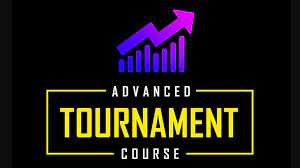

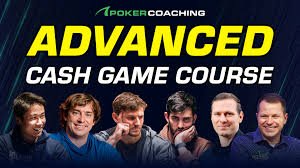
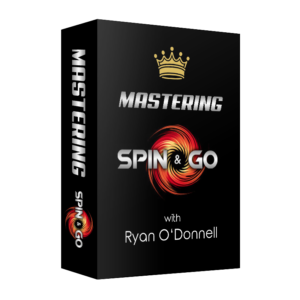
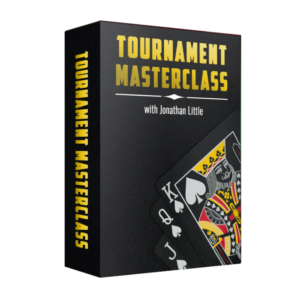
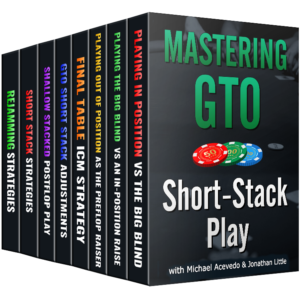
Reviews
There are no reviews yet.